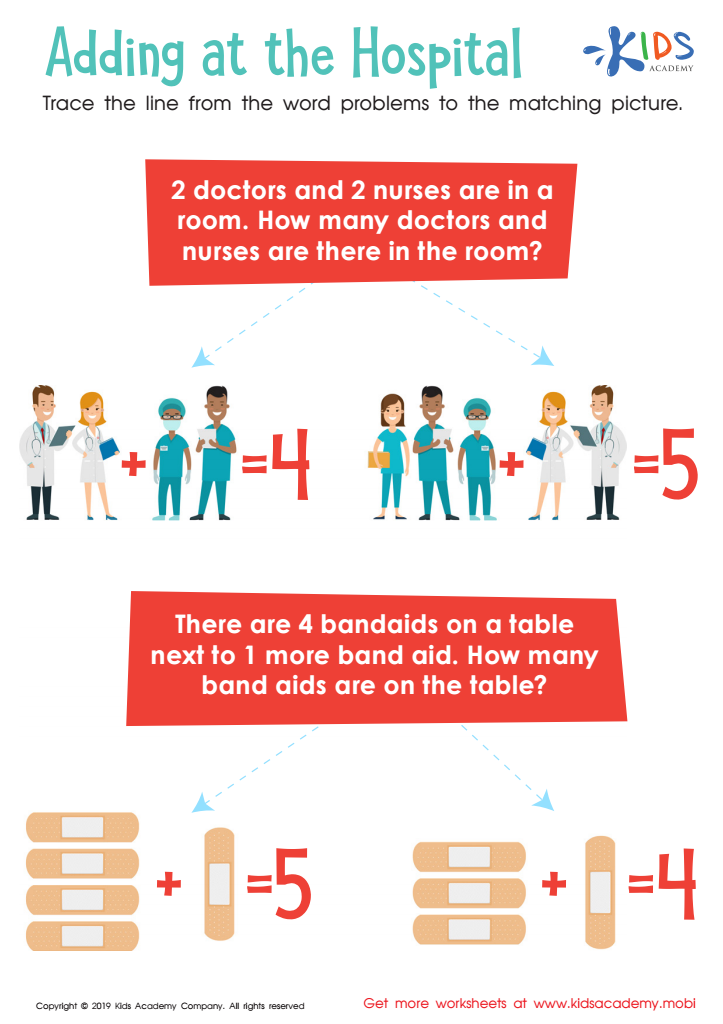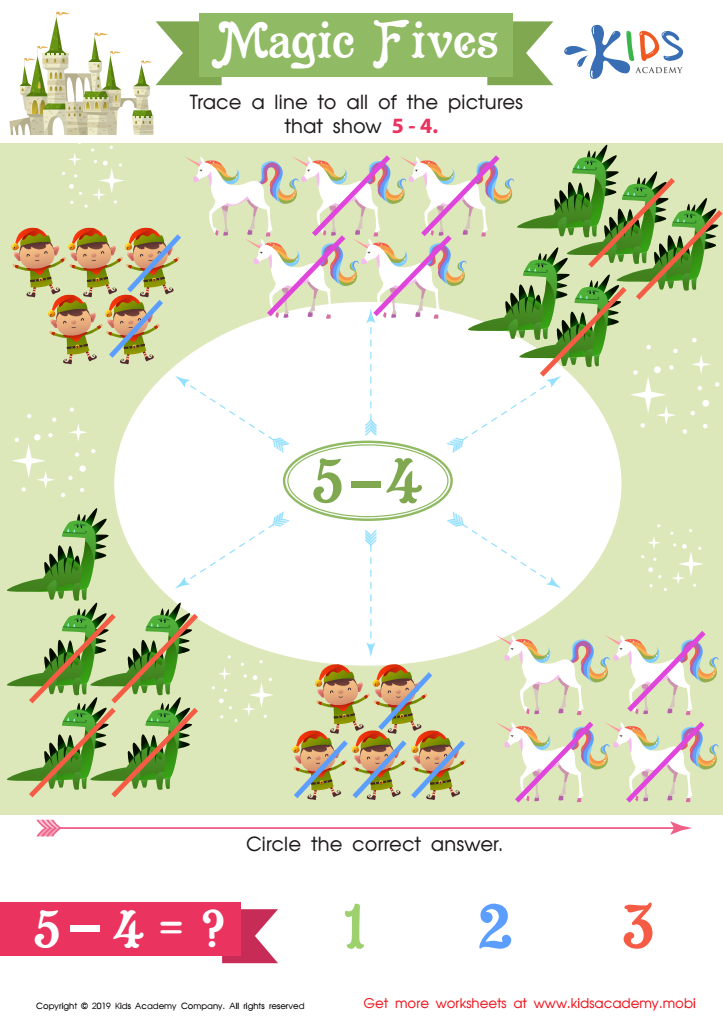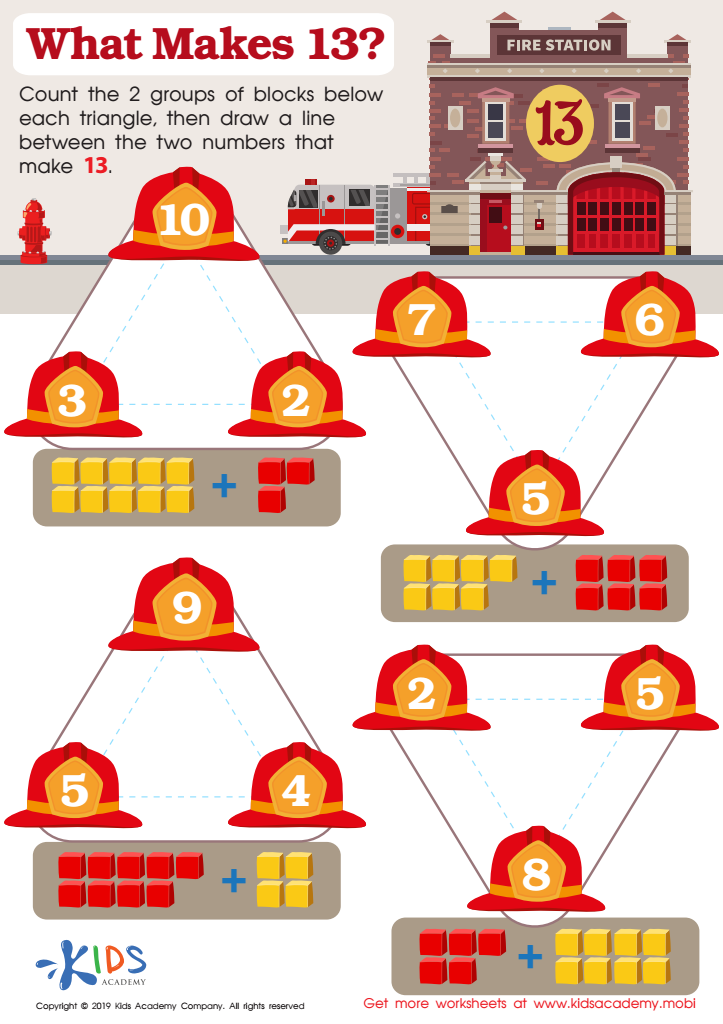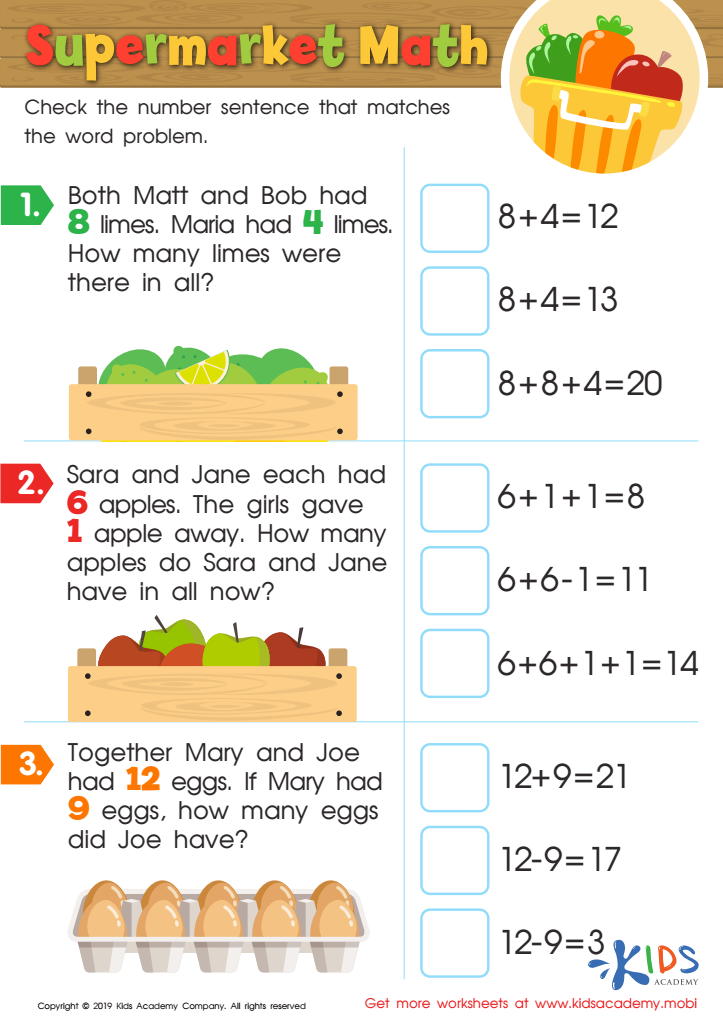Addition skills Normal Addition & Subtraction Worksheets for Ages 3-4
6 filtered results
-
From - To
Welcome to our Addition Skills worksheets designed specifically for children ages 3-4! These engaging and interactive normal addition and subtraction worksheets offer a fun way for young learners to grasp basic math concepts. Each worksheet features colorful illustrations and age-appropriate exercises that encourage counting and problem-solving skills. Your little ones will enjoy matching objects, solving simple addition, and practicing subtraction in a playful environment. Ideal for independent study or guided learning, our carefully crafted resources help lay the foundation for future math success. Download our printable worksheets today to support your preschooler's early math development in an exciting way!


7 Continents and 7 Seas Worksheet


Adding Flower Petals Worksheet


Adding at the Hospital Worksheet


Magic Fives Worksheet


What Makes 13 Worksheet


Supermarket Math Worksheet
Parents and teachers should prioritize the development of addition and subtraction skills in children aged 3-4 for several key reasons. Firstly, these foundational math skills are essential for problem-solving and logical thinking—abilities that extend beyond mathematics into everyday situations. Early exposure to normal addition and subtraction helps young learners understand numbers, quantities, and how they relate to one another, setting the stage for advanced mathematical concepts.
Moreover, mastering these skills at a young age fosters confidence in children's abilities and encourages a positive relationship with math. As they successfully grasp simple addition and subtraction, their sense of achievement can motivate them to tackle more challenging concepts in the future. Engaging in these activities also helps develop critical cognitive skills, such as counting, sorting, and categorization, which are integral to early literacy and science learning contexts.
Finally, integrating addition and subtraction into playful activities—like games or interactive storytimes—enhances social skills as children collaborate with peers. By nurturing these basic mathematical practices early on, parents and teachers pave the way for lifelong learning and success, empowering children to become curious, confident, and numerically literate individuals.
 Assign to My Students
Assign to My Students















